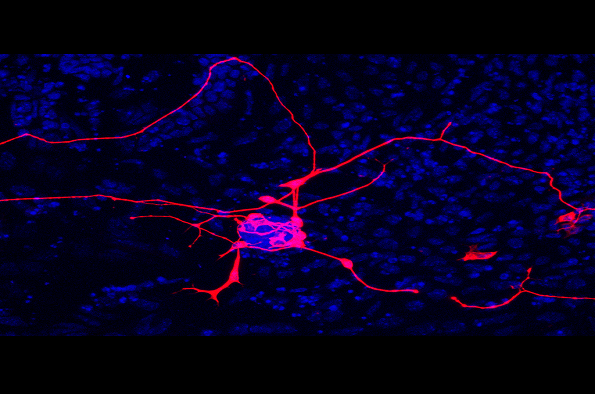
CANCELLED Disruptions to Stem Cell Signalling Networks in Human Developmental Disorders
- Niall Kenneth
- Suitable for: Those with an interest in Genomes, Systems and Therapeutic Targeting
- Admission: Free
Add this event to my calendar
Click on "Create a calendar file" and your browser will download a .ics file for this event.
Microsoft Outlook: Download the file, double-click it to open it in Outlook, then click on "Save & Close" to save it to your calendar. If that doesn't work go into Outlook, click on the File tab, then on Open & Export, then Open Calendar. Select your .ics file then click on "Save & Close".
Google Calendar: download the file, then go into your calendar. On the left where it says "Other calendars" click on the arrow icon and then click on Import calendar. Click on Browse and select the .ics file, then click on Import.
Apple Calendar: The file may open automatically with an option to save it to your calendar. If not, download the file, then you can either drag it to Calendar or import the file by going to File >Import > Import and choosing the .ics file.
Greg’s lab applies cutting-edge chemical, genetic, proteomic and transcriptomic technologies to investigate signalling mechanisms that regulate Embryonic Stem (ES) cell biology. Using these approaches, they have uncovered a series of exciting new ES cell signalling pathways, providing key insights into regulation of stem cell maintenance and differentiation. Recently, they have begun exploring how disruptions to stem cell signalling networks lead to human developmental disorders, particularly intellectual disability. Greg will describe his approaches to pinpoint novel signalling components that are mutated in intellectual disability syndromes, and elucidate the molecular mechanisms underpinning the development of these disorders in patients.
Greg Findlay obtained his PhD at the Institute of Cancer Research, London, working with Richard Lamb to investigate novel components of the mTOR pathway. He then moved to the lab of Tony Pawson FRS at the Lunenfeld-Tanenbaum Research Institute, Toronto, where he used synthetic approaches to understand how modular protein complexes regulate ES cell biology. Greg established his research group in the MRC Protein Phosphorylation & Ubiquitylation Unit at the University of Dundee in 2014. In 2018, he was awarded a Sir Henry Dale Fellowship from the Wellcome Trust/Royal Society and promoted to Senior Lecturer.
